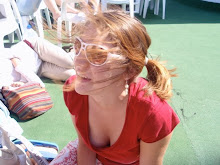10. “Hamburger complète”: a burger with ketchup, mayo, fries, and a fried egg on it. Possibly some other things I don’t even remember anymore…
9. Houses that don’t actually close to the outside: what happens during the rainy season? Don’t worry, we have these convenient steps in the floors to prevent water coming into the house, but really they are just there to make you look like an idiot because you trip over them every day. Awesome.

8. Calls to prayer: there is something oddly reassuring about hearing the same call from the mosques 5 times every day. Anywhere in the country, you are always within earshot of a mosque. Sometimes people even pray, too, and then you get to see fruit vendors close their stalls and kneel on their prayer rugs right in the middle of the street. Except when you hear it at 5 or 6am, reminding you that you, once again, stayed up all night. Then it kind of pisses me off, because I know it’s my own fault.

7. Marché Sandaga: best place to shop EVER. It makes me hate malls even more! Of course, it’s only worth shopping in markets if you know how to haggle in Wolof (not that I’m showing off or anything…) but you get the best deals on crap that was made in China. Hmm, that makes it seem much less cool. But seriously, this outdoor market takes up several blocks of downtown Dakar and contains not only trashy clothes, but everything else you would ever want, from food to appliances to Muslim prayer beads, conveniently organized into different areas of the market (ok, only “convenient” or “organized” to a trained eye). I miss shopping in Senegal.
6. The random things people shout at you on the streets. Usually it’s just “hey toubab!” or “nanga def?” or “will you marry me?”, but sometimes people get pretty creative, like the fruit vendor who always used to shout at my friend Sara, “bëgg nga fanaan ak man?” which means, “do you want to spend the night with me?”. LOL.

5. Cars Rapides (not very original, but seriously, it’s a hollowed-out Mercedes van, with benches put in it, various magazine cutouts taped all over the inside, eyes drawn on the front and “Alhamdoulilahi!” written all over. Plus they drive like crap and it only costs 20 cents to get almost anywhere in Dakar. Too bad only Senegalese people can tell where they are going and you can just as easily end up at the other end of the city as at your destination)
4. MyShop: It’s a gas station, plus a convenience store, plus a pizza place… The best place to go on the way home from school to “study” while enjoying a pizza (see above) and a beer (or cheap Senegalese gin!), and then have taxis fighting over you when you’re done. Or to waste time from 11pm until a “reasonable” time to go out (around 1 or 2 am), you can sit on the terrace and make ridiculously strong gin and tonics with your expat friends.
3. Horse-drawn delivery carts on the freeway. With the driver talking on his cell phone. The very ancient meets the somewhat modern.
2. Traditional Senegalese cuisine … JUST KIDDING. Seriously though, there are some winners, including Soupu Kanja—this actually may be the worst thing I’ve ever eaten, which is impressive in itself. It’s a stew made of okra (ugh) and palm oil (the most saturated oil in the world, tastes sick and hates your digestive system). Then there was the award-winning “goat soup”, a broth made from a boiled goat’s head, complete with brains and tongue! Also, liver, the best meat EVER (not), in the most appetizing greenish-brownish oily sauce. There are also some edible dishes, but you can read about those in any old West Africa guidebook. And you're allowed to eat with your hands!

1. Ham-flavored beef (MyShop’s solution to the Hawaiian-pizza-vs.-Muslim-dietary-restrictions dilemma)








